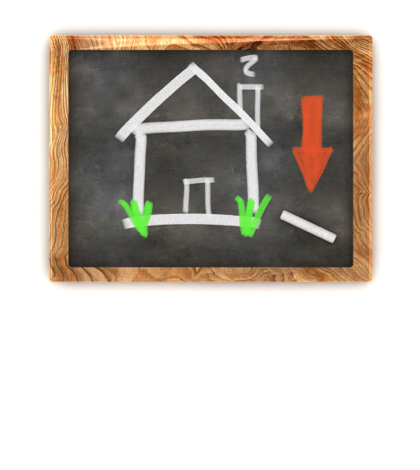Members of the California Association of Realtors say the Coronavirus will inflict major damage on the state’s housing market. Unfortunately, says one economist and a veteran homebuilder, they’re almost certainly right.
If a sampling of California realtors is accurate, the Coronavirus pandemic is going to wreak serious havoc on the state’s housing market, possibly for a long time.
The California Association of Realtors conducted a “flash poll” of its members March 14-16, shortly after the viral outbreak led to hoarding at stores but before state and local officials began ordering residents to stay indoors and limit their travel to essential trips.
The survey was also held before seven counties ordered all non-essential businesses closed, and before Los Angeles ordered temporary restrictions – including a ban on gatherings of 50 people or more -in an attempt to slow the spread of the virus.
CAR’s survey resulted in close to 1,100 responses, and the results weren’t encouraging.
Eighty five percent of those surveyed said they expect COVID-19 to hurt their open-house visits, a crucial part of selling houses because most people want to see a house before they buy it.
Major findings include:
- More than 78 percent of the state’s realtors believe the Coronavirus outbreak will have a negative impact on single-family home, sales. That was a 25 percent from when the same question was asked one week earlier;
- Because of the outbreak, 74 percent said they expect the time houses stay on the market to last longer;
- Sixty two percent said housing inventory will be hurt, 58 percent said prices will be impacted, 52 percent said it will be more difficult to close a deal and 45 percent said they expect escrow times to increase.
Other results from the email survey, which dealt exclusively with the Coronavirus and its possible impact on California’s housing market: 54 percent said they’ve had clients call off a home purchase because of the Coronavirus outbreak, and 45 percent backed out of a home sale. Two thirds said clients have asked them questions regarding how the pandemic is likely to impact the housing market.
Maybe the only good news in the survey was that most realtors have not had clients take a home they were trying to sell off the market.
The U.S. housing market got off to a good start in 2020. In January, sales of new homes and pending home sales were both trending up, according to Business Insider.
That positive trend continued into February, when sales of previously owned homes hit their highest point in 13 years. In early March, as news coverage of the Coronavirus increased, mortgage rates hit historic lows, a development that boded well for home sales, the online magazine reported.
But on March 11 the World Health Organization declared the Coronavirus outbreak a pandemic. Immediately, major venues and events were closed or cancelled, and panic buying of sanitation items began.
As for the housing market, there’s very little data that covers the past two weeks, since the pandemic was declared. CoreLogic in Irvine, which tracks the Southern California housing market, won’t release its March data until the middle of next month.
But a lot of people’s immediate economic future is up in air, and people don’t buy houses when they’re worried about having a paycheck in a month, said Mike Dwight, former president of Frontier Homes in Ontario.
“In the short-term this is going to be pretty devastating,”said Dwight, who now runs a consulting business in Lake Forest. “It doesn’t look good right now because people are losing their retirement savings and they’re worried about their paychecks being interrupted.”
As bad as the present situation is, it’s not as bad as the collapse of 2008, which very few people saw coming, according to Dwight.
“We were blindsided in 2008,” Dwight said. “When it happened, no one knew why. This slowdown is happening for a very specific reason. I think we’ll be way down for two quarters, but then it will come back. They just need to get a handle on the virus.”
The Inland housing market will slip, and is not likely to come back until late summer or early fall, said Robert Kleinhenz, a private consultant in Long Beach and a former economist with Beacon Economics in Los Angeles.
“It’s hard to imagine that we will even come close to the sales we had last year,” Kleinhenz said. “There will be a huge drop, it’s just a question of how much. The hospitality industry is getting hit very hard also, and that’s a big part of California’s economy.
“It’s just a terrible break for everyone.”
Some are hoping the virus will slow when the weather turns hot. Dwight believes the frenzy that happened after the initial outbreak could die down when people realize the Coronavirus, while serious, is usually not fatal.
“Yes, we should take precautions, but this is not the Bubonic Plague,” Dwight said. “It is not automatically a death sentence. If people start realizing that, maybe things will start to get back to normal.”
 IE Business Daily Business news for the Inland Empire.
IE Business Daily Business news for the Inland Empire.


